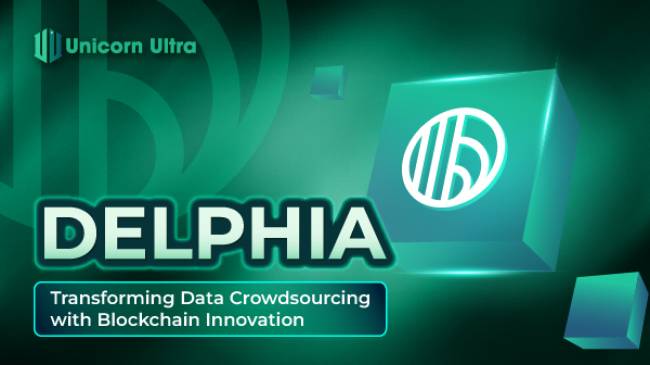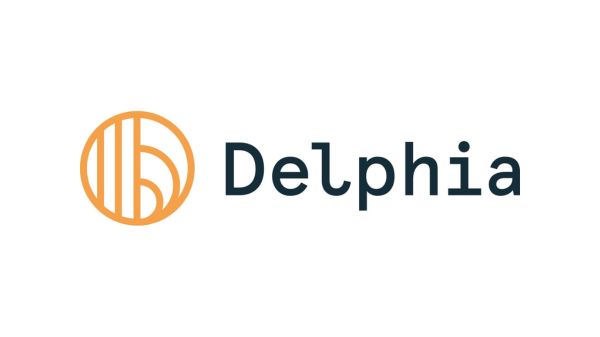Categories: General Information
What is Delphia? Transforming Data Crowdsourcing with Blockchain Innovation
Explore Delphia, a cutting-edge platform that utilizes blockchain technology to revolutionize data crowdsourcing. Gain insights into what is Delphia, its functionality, key features, advantages of holding Delphia tokens, and essential details about the Delphia token.
In the digital age, data holds immense value and drives decision-making, innovation, and progress across various sectors. However, the process of collecting and analyzing data can be challenging due to its vastness and complexity. This is where Delphia comes into play as an innovative platform that harnesses blockchain technology to revolutionize data crowdsourcing. In this article, let’s explore what is Delphia, uncovering its inner workings, notable features, benefits of holding Delphia tokens, and crucial information about the Delphia token.
Table of Contents
What is Delphia?
What is Delphia? Delphia serves as a decentralized platform for data crowdsourcing, enabling individuals to securely and transparently contribute and monetize their data. By leveraging blockchain technology, Delphia ensures data integrity, privacy, and provides incentives to data contributors through its native cryptocurrency known as Delphia tokens.

How Delphia Works
At the heart of Delphia lies a decentralized network comprising data contributors and validators. Contributors share their data through various channels, including mobile applications, web interfaces, and IoT devices. This data is anonymized and securely stored on the blockchain.
Validators play a vital role within the Delphia ecosystem by verifying the accuracy and quality of the contributed data. Incentivized through the earning of Delphia tokens, validators ensure the reliability and unbiased validation of data by relying on a consensus mechanism powered by blockchain technology.

Highlights of Delphia
Trust and Transparency: Delphia utilizes the immutability of blockchain to establish a transparent and auditable ledger of data contributions and validations. This instills trust among data consumers, as the data's source can be traced and its integrity remains intact.
Equitable Incentives: Delphia rewards data contributors and validators with Delphia tokens, fostering a fair and sustainable ecosystem. This incentivization model encourages active participation and ensures that contributors receive appropriate compensation for their valuable data.
Data Privacy: Delphia places a high priority on data privacy by implementing advanced encryption techniques and anonymization protocols. Contributors retain control over their data, choosing which aspects to share while safeguarding their privacy rights.
What advantages and disadvantages does Delphia have?
To evaluate the advantages and disadvantages of Delphia or any specific project, you would typically need to gather detailed information about the project's goals, technology, use cases, and community engagement. Without specific information about Delphia, I cannot provide a comprehensive assessment. However, I can offer some general considerations for assessing the pros and cons of a blockchain or cryptocurrency project:
Advantages:
Innovation: Blockchain projects often aim to introduce innovative solutions to various industries, potentially addressing existing problems or creating new opportunities.
Decentralization: Many blockchain projects prioritize decentralization, which can enhance security, transparency, and censorship resistance.
Use Cases: A successful blockchain project typically has well-defined and practical use cases that can benefit users or organizations.
Community Support: An active and engaged community can contribute to the success and adoption of a blockchain project.
Technology: Assess the technological features and advancements offered by the project, as novel technology can set it apart from competitors.
Partnerships and Ecosystem: Collaborations with other projects and businesses can expand the project's ecosystem and potential.
Token Utility: Evaluate the utility and role of the project's native token within its ecosystem.
Disadvantages:
Competition: The blockchain space is highly competitive, and new projects often face stiff competition from existing players.
Regulatory Challenges: Regulatory uncertainty or changing regulations in various jurisdictions can pose challenges to blockchain projects.
Adoption Hurdles: Gaining user adoption can be challenging, especially if the project addresses a niche market or faces competition from well-established alternatives.
Security Risks: Security vulnerabilities or breaches can harm the project's reputation and user trust.
Technological Challenges: Developing and maintaining blockchain technology can be complex and resource-intensive.
Market Volatility: The cryptocurrency market is known for its price volatility, which can impact the project's token and funding.
Scalability: Scalability issues can limit the project's ability to handle a growing user base and transaction volume.
Lack of Use Cases: A project with limited or unclear use cases may struggle to gain traction and adoption.
It's important to note that the specific advantages and disadvantages of a blockchain project can vary widely depending on the project's design, goals, and the challenges it seeks to address. When evaluating any blockchain project, conducting thorough research, staying informed about the latest developments, and seeking input from experts and the community are essential steps to gain a comprehensive understanding of its potential and risks.

Delphia Token Information
The Delphia token (DLP) is an Ethereum-based ERC-20 compliant cryptocurrency. It serves as the medium of exchange within the Delphia ecosystem, facilitating transactions between data contributors, validators, and data consumers. Token holders can stake their DLP tokens to earn additional rewards and participate in decision-making processes on the platform.
Benefits of Holding Delphia Tokens
Financial Rewards: Holding Delphia tokens provides an opportunity for individuals to earn passive income by staking or participating in the data validation process. Validators receive token rewards based on their contributions and accuracy, creating a potential income stream for token holders.
Data Access: Delphia token holders gain access to high-quality, verified data available on the platform. This data can be utilized by businesses, researchers, and individuals for various purposes, such as market analysis, research endeavors, and product development.
Influence in Platform Governance: Delphia token holders possess the power to participate in platform governance, including voting on proposed changes or upgrades. This democratic approach ensures community involvement in the platform's evolution and fosters a sense of ownership among token holders.
Conclusion
Now we know what is Delphia, Delphia represents a transformative solution for the data industry, bridging the gap between data contributors, validators, and consumers while guaranteeing transparency, privacy, and equitable incentives. Through its innovative implementation of blockchain technology, Delphia is revolutionizing data crowdsourcing, empowering individuals to monetize their data and providing businesses and researchers with reliable and verified data sources. As we navigate the data-driven world, Delphia paves the way for a more inclusive and decentralized data ecosystem. Follow Uniultra.xyz to update more interesting information and knowledge about blockchain
